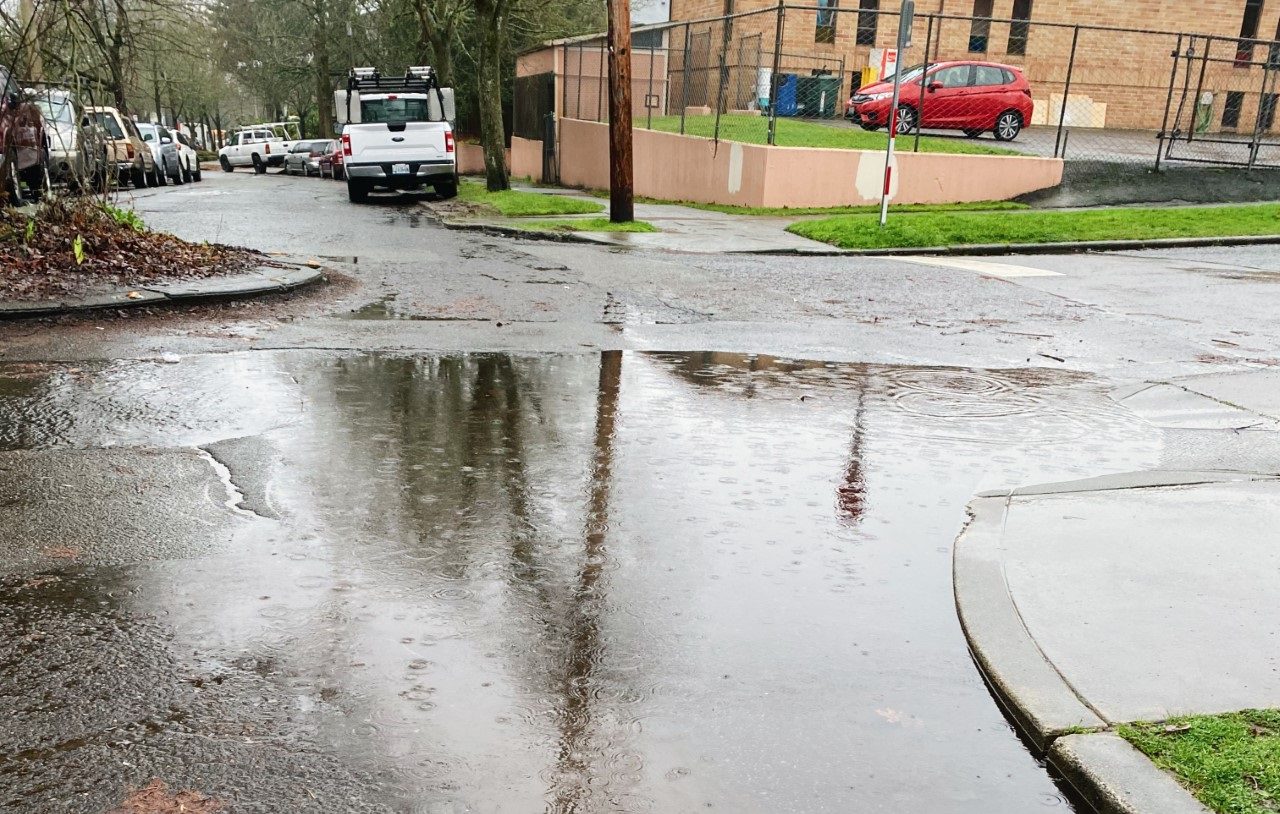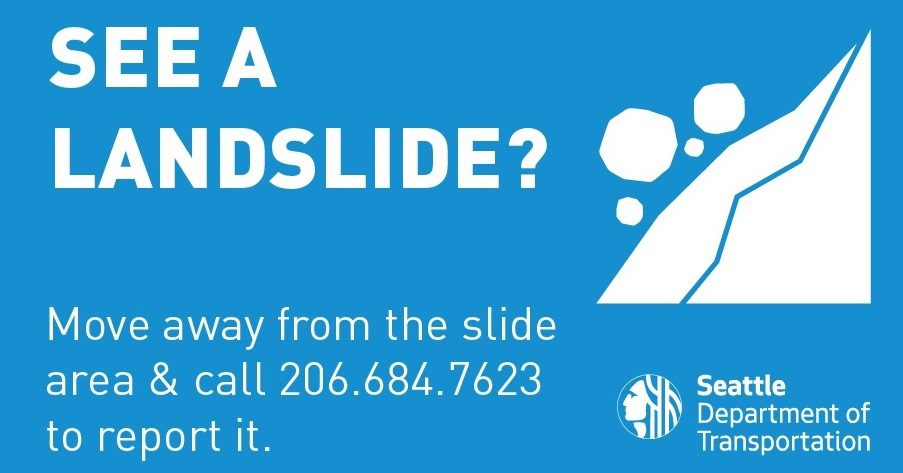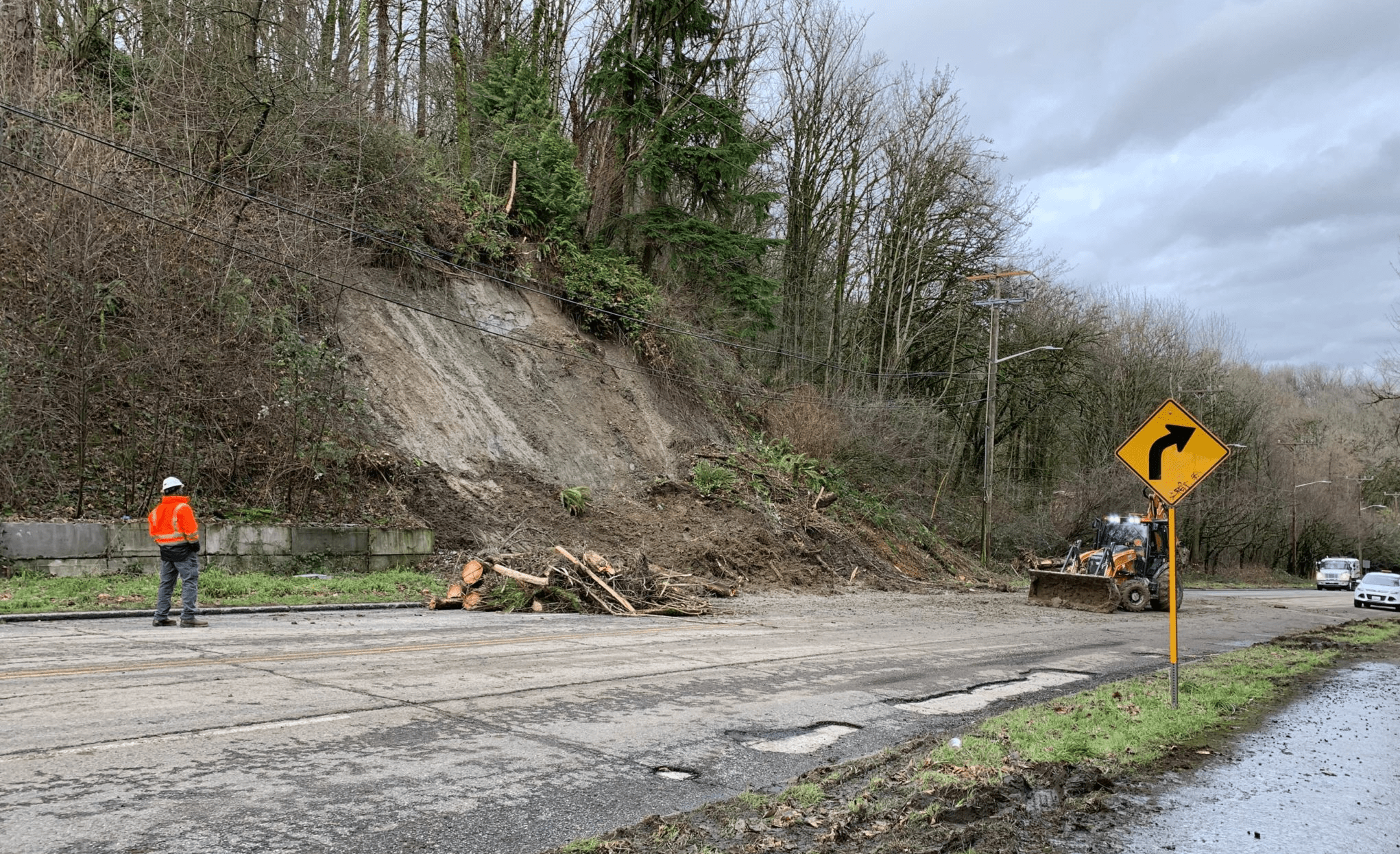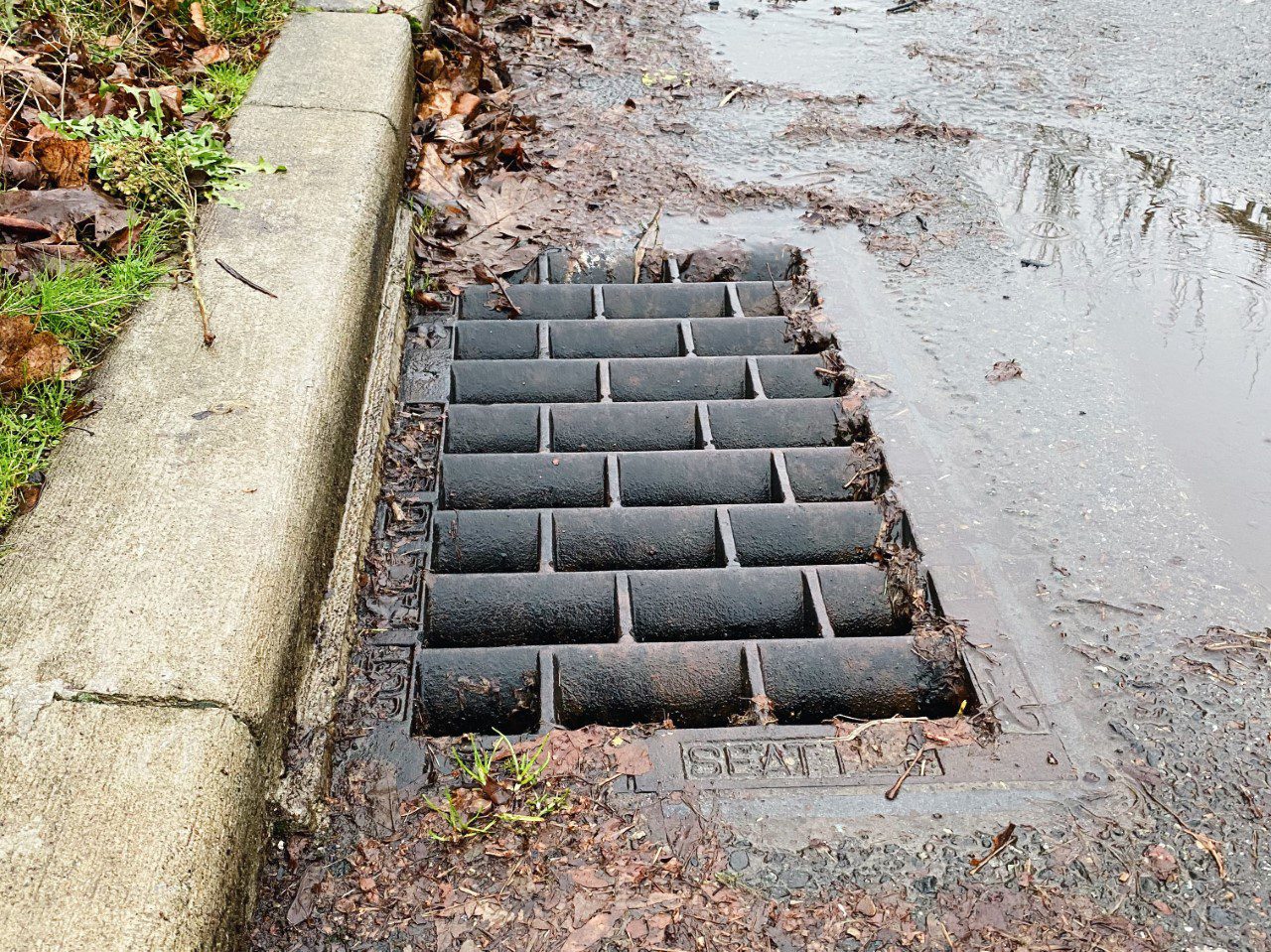 Example of water pooling on a street in Seattle near a clogged storm drain. Photo credit: Jeanné Clark.
Example of water pooling on a street in Seattle near a clogged storm drain. Photo credit: Jeanné Clark. After several days of snow, ice, and below-freezing conditions, the forecast calls for temperatures to begin rising tonight, and remain warmer in the coming days, along with significant rainfall.
Here are some tips and reminders to help you stay safe if you need to travel. Please be aware of potential flooding, pooled water, and even landslides in the street. Also be on the lookout for fallen trees, power and traffic signal outages, and other potential hazards.
Please keep these safety reminders in mind:
- If you need to travel today, please go slow, do not walk or drive through water, and follow all lane closures or detours in place.
- Treat intersections without power as a 4-way stop. Come to a full stop and take turns going through the intersection, keeping an eye out for pedestrians and cyclists to ensure everyone can get to where they’re going safely.
- Be aware of your surroundings when walking, cycling, rolling, or driving. Major winds can cause outages and falling trees impacting traffic signals. Please travel slow and stay alert!
- With rain and melting snow expected, keep your neighborhood safe and accessible for all. If a drain is blocked, clearing a clogged gutter will reduce rainwater buildup that otherwise causes flooding.
- Remember to stay away from downed power lines. If you do encounter downed power lines, call Seattle City Light at (206) 684-3000. Check for branches that are cracked or brushing against power lines in your neighborhood, if you find any, contact their vegetation management.
- Notice a fallen tree or other debris blocking streets or sidewalks? Our crews are prepared. Contact us at (206) 684-ROAD [7623].


If you see high water or a street closed:
- Avoid pooled water and flooded streets at all times.
- There is no way to tell how deep still water is on a flooded street, and driving through it is not advised. Flooded streets can cause a vehicle to stall and result in severe damage to the vehicle from:
- Flooding the engine
- Loss of braking capabilities
- Loss of steering capabilities
- Short in electrical components
- Never drive around barricades (high water and road closed signs).
- If caught on a flooded street with rapidly rising waters, get out of the car quickly and move to higher ground.
- Avoid any contact with floodwater. It may be contaminated with harmful chemicals and debris that are not visible from the surface.
- Stay out of areas subject to flooding. Underpasses, dips, low spots, etc. can become rapidly filled with water.
If you can, please clear your neighborhood storm drains!
All the snow and ice from last week will likely turn into significant liquid on our streets and sidewalks. The water that collects on our streets flows into storm drains like the one shown below, to help keep neighborhoods from flooding. Ensuring they’re not blocked will allow water to flow freely into the drains and help prevent water from pooling in the street.
Seattle Public Utilities’ drainage crews work hard to maintain the City’s drainage infrastructure, including storm drains on streets. But with tens of thousands of drains spread all across the city, we need your help too! Thank you.
